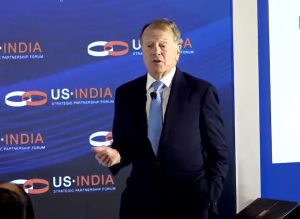Amazons said it witnessed a record 11 crore customer visits in the first 48 hours, with 80 per cent coming from tier 2 and smaller towns…reports Asian Lite News
Driven by rising disposable incomes, especially in the small cities and towns amid growing digital payments, the India festive season has kicked off to a roaring start, ecommerce platforms said on Monday.
Amazons said it witnessed a record 11 crore customer visits in the first 48 hours, with 80 per cent coming from tier 2 and smaller towns, during the “The Amazon Great Indian Festival 2024”.
According to the company, more than three lakh unique products including apparel, smartphones, beauty, everyday essentials and more were delivered within the same day or next day.
UPI usage on the platform grew 16 per cent compared to last year.
According to Saurabh Srivastava, Vice President–Categories, Amazon India, they are witnessing an overwhelming participation of sellers across India, including small and medium businesses.
Flipkart said it saw more than 33 crore user visits on its platform during Early Access and Day 1 combined during the ‘Big Billion Days 2024’, reflecting festive enthusiasm from shoppers from across the country.
“Some of the early trends indicate an increase in demand for categories that enable a lifestyle upgrade, and tier 2+ cities have been showing growth in the run up to this year’s festive season,” said Harsh Chaudhary, Vice President-Growth, Flipkart.
Myntra said it witnessed 15 times new users over business as usual (BAU) joining the platform, and a two times growth in OPM (orders per minute) at peak over last year, in the opening hour of its Big Fashion Festival, including 120 million visitors during Early Access and Day 1 sales.
Unicommerce said it saw e-commerce order volumes growing by 20 per cent during the first four days of the festive season sale (September 26-September 29), compared to the first four days of the festive season sales last year.
In the same period, the gross merchandise value (GMV) also increased by 24 per cent over last year.
Kapil Makhija, MD and CEO of Unicommerce, said they see an increasing number of brands participating in the sale season, affirming India’s status as a digitally forward country.

₹1.2 Lakh Cr Festive Boost for India E-commerce
Driven by high pent-up demand and premiumisation wave, e-commerce sales in India are estimated to reach Rs 1 lakh-Rs 1.2 lakh crore in gross merchandise value (GMV) this festive season, a report said on Monday.
This will be 20 per cent year-on-year growth for the e-commerce sector, according to the report by Redseer Strategy Consultants.
Mobiles, electronics and fashion categories are set to gain momentum while other categories (beauty and personal care, home and quick-commerce-led grocery) have had a better business as usual (BAU) performance and will see an incremental upside, “taking their festive growth figure to north of 25 per cent,” the report mentioned.
According to Kushal Bhatnagar, Associate Partner at Redseer, mobiles and electronics remain key value and growth drivers this festive season, especially as consumers respond to affordability options that make premium products more accessible.
“Moreover, sellers and platforms have potential to unlock the pent-up demand in the category by optimising for pricing and selection,” Bhatnagar added.
As brands look to capitalise on the festive demand, many are strategically leveraging e-commerce platforms to cater to the aspirational customers’ needs and reach the relatively less accessible customers in tier 2 cities and beyond.
“As a result, they look to partner deeply with the leading platforms to attract customers via lucrative discounts and offers available in the large-scale festive events,” he said.
This festive season, brands are looking to push premium stock keeping units (SKUs) at a discounted price, to encourage aspirational buying.
Quick commerce, which saw significant traction in 2023, is set to contribute approximately 8 per cent to overall e-commerce growth, up from 5 per cent last year.
Newer categories such as home and kitchen appliances are likely to get pushed aggressively on quick commerce platforms and could also help the platforms to boost their average order values and profitability, the report mentioned.
ALSO READ: JPMorgan Bets Big on India






